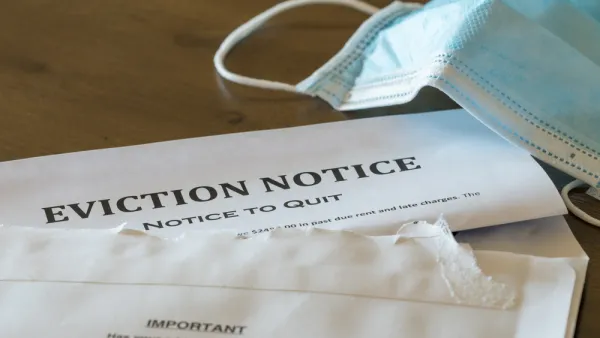Two urban and regional planning faculty at the University of Michigan's Taubman College, Assistant Professor Robert Goodspeed and Professor Emerita Margaret Dewar, were awarded a grant to study data on evictions in Michigan.
Two urban and regional planning faculty at the University of Michigan's Taubman College of Architecture and Urban Planning, Assistant Professor Robert Goodspeed and Professor Emerita Margaret Dewar, were awarded a grant to study data on evictions in Michigan. The project, “Michigan Evictions: Assessing Data Sources and Exploring Determinants,” is a partnership with the Michigan Advocacy Program, which provides free or low-cost access to the justice system through direct legal help and statewide advocacy. The project will receive funding through the 2019 Community-Academic Research Partnerships Grant Program, Research on Strategies to Prevent and Alleviate Poverty in Michigan — sponsored Poverty Solutions at the University of Michigan and the Detroit Community-Academic Urban Research Center.
Each year, tens of thousands of Michigan households lose their homes as a result of court-ordered evictions, and Michigan cities have some of the highest eviction rates in the nation. The goal of Goodspeed and Dewar’s project is to analyze available data to better understand the prevalence, patterns, and causes of evictions in Michigan, and inform decisions by social services, legal services, and policymakers to address the problem — while also contributing to the growing national research literature on the topic.
The project has three primary aims:
1. Evaluate the quality of data obtained from the Eviction Lab and state and local court records by comparing them in three illustrative counties.
2. Conduct an exploratory analysis of determinants of eviction statewide using Eviction Lab Data at the census block group level.
3. Provide recommendations for the further development of policies and programs to reduce evictions in Michigan, as well as recommendations for improved data collection and analysis.
Poverty Solutions is a U-M institute that encourages multidisciplinary solutions to alleviating poverty through solution-focused partnerships and funding for research. Poverty Solutions collaborates with the Detroit Community-Academic Urban Research Center, a health equity participatory research group, to provide funding for research into various aspects of poverty in the United States. Dewar and Goodspeed’s project is one of nine that has been awarded funding through the 2019 Poverty Solutions grant.
FULL STORY: Goodspeed and Dewar Receive Grant to Study State's High Eviction Rate

Analysis: Cybertruck Fatality Rate Far Exceeds That of Ford Pinto
The Tesla Cybertruck was recalled seven times last year.

National Parks Layoffs Will Cause Communities to Lose Billions
Thousands of essential park workers were laid off this week, just before the busy spring break season.

Retro-silient?: America’s First “Eco-burb,” The Woodlands Turns 50
A master-planned community north of Houston offers lessons on green infrastructure and resilient design, but falls short of its founder’s lofty affordability and walkability goals.

Test News Post 1
This is a summary

Analysis: Cybertruck Fatality Rate Far Exceeds That of Ford Pinto
The Tesla Cybertruck was recalled seven times last year.

Test News Headline 46
Test for the image on the front page.
Urban Design for Planners 1: Software Tools
This six-course series explores essential urban design concepts using open source software and equips planners with the tools they need to participate fully in the urban design process.
Planning for Universal Design
Learn the tools for implementing Universal Design in planning regulations.
EMC Planning Group, Inc.
Planetizen
Planetizen
Mpact (formerly Rail~Volution)
Great Falls Development Authority, Inc.
HUDs Office of Policy Development and Research
NYU Wagner Graduate School of Public Service




























